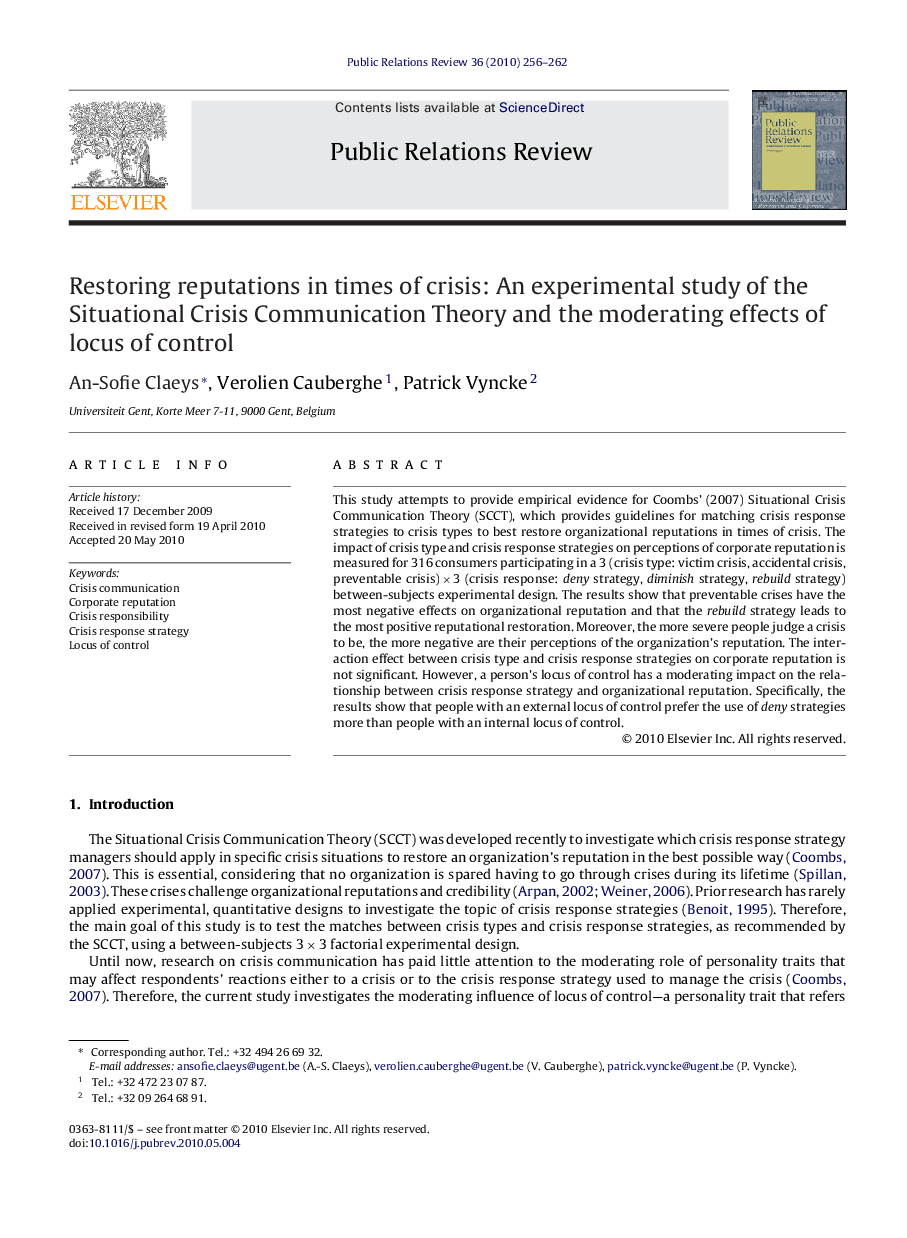| Article ID | Journal | Published Year | Pages | File Type |
|---|---|---|---|---|
| 139679 | Public Relations Review | 2010 | 7 Pages |
This study attempts to provide empirical evidence for Coombs’ (2007) Situational Crisis Communication Theory (SCCT), which provides guidelines for matching crisis response strategies to crisis types to best restore organizational reputations in times of crisis. The impact of crisis type and crisis response strategies on perceptions of corporate reputation is measured for 316 consumers participating in a 3 (crisis type: victim crisis, accidental crisis, preventable crisis) × 3 (crisis response: deny strategy, diminish strategy, rebuild strategy) between-subjects experimental design. The results show that preventable crises have the most negative effects on organizational reputation and that the rebuild strategy leads to the most positive reputational restoration. Moreover, the more severe people judge a crisis to be, the more negative are their perceptions of the organization's reputation. The interaction effect between crisis type and crisis response strategies on corporate reputation is not significant. However, a person's locus of control has a moderating impact on the relationship between crisis response strategy and organizational reputation. Specifically, the results show that people with an external locus of control prefer the use of deny strategies more than people with an internal locus of control.
